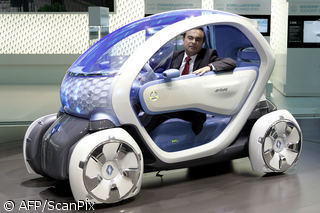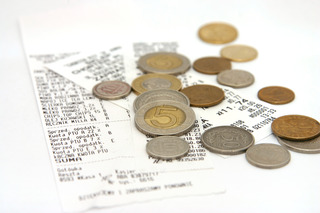The EU has decided to turn to Russia for some of its oil needs to reduce the continent's dependence on OPEC.
Published:
16 October 2000 y., Monday
A long-term agreement with Russia would benefit Europe by allowing it to diversify its energy sources, but it would also force EU officials into some difficult policy choices.
Russia has already indicated that its assistance would come at a price.
Russian deputy prime minister Viktor Khristenko told EU leaders in Brussels a few weeks ago that Russia wants its energy transit to bypass Ukraine. Russian officials widely suspect Ukraine of illegally siphoning off energy and pocketing the profit.
And Russian Deputy Foreign Minister Ivan Ivanov said earlier this week that Russia also wants the EU to drop its support for the Baku-Ceyhan pipeline, sponsored by the US and Turkey. The pipeline, if completed, would bypass Russia.
Observers call the EU proposal for energy cooperation with Russia the "Prodi plan," after European Commission president Romano Prodi. He was the first to present it to Russia.
The plan envisages a swap of Russian energy for EU assistance. It was largely worked out between Germany and the commission.
Russia has large energy reserves, but has little resources to exploit them. The export of gas and oil requires expensive transit facilities.
Under the Prodi plan, the EU would use its political influence and technical assistance to channel foreign investment into Russian energy transit. In return, Russia would guarantee the EU a significant supply of energy for the next 20 years.
Emerson says the EU is likely to promote an even-handed approach to transit routes, supporting the idea of multiple pipelines. This is borne out by the Commission's external relations spokesman Gunner Wiegand, who says the EU has no official strategic preferences. According to Wiegand, the deciding factors as to transit routes must be commercial viability, private sector interest and their multiplicity.
Yet the placing of transit routes has obvious geo-political implications.
Emerson says that while Russia and the United States are involved in what he called "great games" of strategy, the EU was not willing to view its choices in such terms.
The EU does not have a cohesive energy strategy at this stage, but has been prompted into formulating such a strategy by the recent rise in world oil prices and by widespread protests by citizens complaining about high taxes on fuel.
Šaltinis:
rferl.org
Copying, publishing, announcing any information from the News.lt portal without written permission of News.lt editorial office is prohibited.
The most popular articles
 European cities may still be feeling the pinch of the global recession.
more »
European cities may still be feeling the pinch of the global recession.
more »
 The EBRD Board of Directors has approved a $50 million convertible loan to Petrolinvest to finance the completion of exploration works at the company’s main oilfields.
more »
The EBRD Board of Directors has approved a $50 million convertible loan to Petrolinvest to finance the completion of exploration works at the company’s main oilfields.
more »
 The European Commission welcomes the adoption today at the United Nations in Geneva of the first international regulation on safety of both fully electric and hybrid cars.
more »
The European Commission welcomes the adoption today at the United Nations in Geneva of the first international regulation on safety of both fully electric and hybrid cars.
more »
 Bloomberg has today announced that Lithuania had the outlook on its credit rating raised by Fitch Ratings after the Government implemented an austerity program to curb the budget deficit.
more »
Bloomberg has today announced that Lithuania had the outlook on its credit rating raised by Fitch Ratings after the Government implemented an austerity program to curb the budget deficit.
more »
 In January 2010, compared with December 2009, the highest increase in retail trade in the EU-27 Member States was observed in Lithuania.
more »
In January 2010, compared with December 2009, the highest increase in retail trade in the EU-27 Member States was observed in Lithuania.
more »
 Three thousand former car, refrigerator and construction workers in Germany and Lithuania will get €7.6 million in EU globalisation adjustment fund aid for training, self-employment and job guidance after Parliament gave the green light on Tuesday.
more »
Three thousand former car, refrigerator and construction workers in Germany and Lithuania will get €7.6 million in EU globalisation adjustment fund aid for training, self-employment and job guidance after Parliament gave the green light on Tuesday.
more »
 Some 80% of Europeans continue to travel for their holidays according to a new Eurobarometer survey on ‘The attitudes of Europeans towards tourism 2010’.
more »
Some 80% of Europeans continue to travel for their holidays according to a new Eurobarometer survey on ‘The attitudes of Europeans towards tourism 2010’.
more »
 The EU's internal market will be under scrutiny Tuesday when a series of reports will be debated by MEPs in Strasbourg.
more »
The EU's internal market will be under scrutiny Tuesday when a series of reports will be debated by MEPs in Strasbourg.
more »
 EU Employment and Social Affairs Ministers today agreed on a new facility to provide loans to people who have lost their jobs and want to start or further develop their own small business.
more »
EU Employment and Social Affairs Ministers today agreed on a new facility to provide loans to people who have lost their jobs and want to start or further develop their own small business.
more »
 Over €7.6 million in financial aid for training and self-employment could be available to former workers in German and Lithuanian if MEPs back the measures Tuesday.
more »
Over €7.6 million in financial aid for training and self-employment could be available to former workers in German and Lithuanian if MEPs back the measures Tuesday.
more »